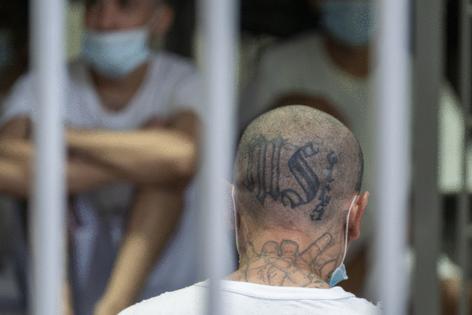US court ends contempt proceeding in Trump deportations case
Published in Political News
A federal appeals court threw out a judge’s finding of “probable cause” to hold Trump administration officials in criminal contempt of court for sending accused Venezuelan gang members to an El Salvador prison despite his order to halt the deportations.
The 2-1 order on Friday means U.S. officials no longer face a further contempt investigation or the possibility of prosecution under that previous ruling. In April, U.S. District Judge James Boasberg in Washington concluded in a blockbuster opinion that officials acted in “willful disregard” of his orders on March 15 to turn around planes carrying Venezuelans to El Salvador.
Judge Greg Katsas wrote in an opinion explaining his vote that there was “fatal ambiguity” in Boasberg’s initial order barring the government from “removing” the Venezuelans. He said the government’s position was reasonable that it believed Boasberg was referring to the migrants physically leaving the U.S. — which had occurred by the time he issued the order — and not El Salvador taking custody.
As a result, the administration’s actions “clearly and indisputably” weren’t criminal, Katsas said.
The two judges in the majority on the contempt issue — Katsas and Neomi Rao — were appointed during Trump’s first term. Judge Nina Pillard dissented, writing that her colleagues had “cut short an entirely lawful and regular process to determine accountability for violation of a court order.”
Pillard, appointed by former President Barack Obama, is part of the DC Circuit’s majority of Democratic appointees.
Meanwhile, a different appeals court panel on Friday struck another decision from Boasberg that the Venezuelans were entitled to an opportunity to retroactively challenge being sent to the Salvadoran prison. The appellate judges said that because those individuals had since been sent to Venezuela and released, Boasberg’s earlier decision had been “overtaken by events” and could no longer stand.
The U.S. Court of Appeals for the DC Circuit sent the case back to Boasberg to reconsider what kind of relief is appropriate now for the Venezuelans, if any.
The latest orders are certain to fuel Trump and his allies’ criticisms of Boasberg. Trump has publicly bashed the judge’s rulings against his administration. The Justice Department last month took the unusual step of filing an ethics complaint claiming Boasberg made “improper” comments at a conference attended by other judges and Chief Justice John Roberts about his colleagues’ concerns that the administration might disregard court rulings.
Legal experts have questioned the validity of the complaint, including the fact that the department characterized a private meeting of judges as “public.”
Lee Gelernt of the American Civil Liberties Union, lead counsel for the Venezuelans, said in a statement that the DC Circuit panel “rightly sent the case back to the judge so he can assess the proper way for these men to get due process after being locked away in the brutal El Salvador prison for months on end.”
Boasberg has already started that process and asked for updates while waiting for the appeals court ruling. In a report filed Thursday to the judge, lawyers for the Venezuelans said they were still trying to reach all of the individuals covered by the case, but that so far “many” had said they still wanted to press their claims to return to the U.S.
But Gelernt said they “strongly disagree” with the order knocking out Boasberg’s contempt decision. Gelernt said they “will consider all options going forward” and that even the Justice Department’s lawyers “understood in the moment that they were not supposed to hand over these men to El Salvador in light of Judge Boasberg’s crystal clear order.”
The challengers could ask the full bench of active DC Circuit judges to reconsider the divided order on the contempt issue.
Attorney General Pam Bondi posted on social media that the DC Circuit’s order on the contempt issue was a “MAJOR victory” that confirmed the administration’s claim that Boasberg’s order was “failed judicial overreach at its worst.”
In the order reviving the fight over whether the Venezuelans are entitled to continue challenging their removal from the U.S., Katsas and Rao were also part of that panel, joined by another Trump appointee, Judge Justin Walker. Cases are randomly assigned on appeal.
The cases are J.G.G. v. Trump, U.S. Court of Appeals, DC Circuit, 25-5124 and 25-5217.
______
©2025 Bloomberg L.P. Visit bloomberg.com. Distributed by Tribune Content Agency, LLC.

























































Comments